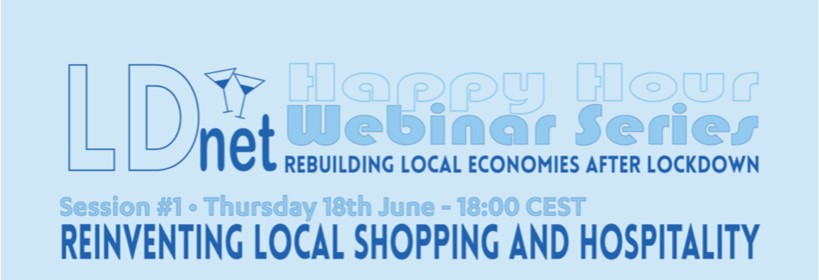 The webinars on Rebuilding local economies after lockdown kicked off on Thursday 18 June 2020. The 1st session was on Reinventing local shopping and hospitality and was attended by some 40 participants. The full programme, link to the recording of the session and some “take away” points are available below.
The webinars on Rebuilding local economies after lockdown kicked off on Thursday 18 June 2020. The 1st session was on Reinventing local shopping and hospitality and was attended by some 40 participants. The full programme, link to the recording of the session and some “take away” points are available below.
Full recording of the webinar on ‘Reinventing local shopping and hospitality’
To access the recording with the integrated audio transcript click here. Access password: 8X^86IfV
Summary of the presentations and discussion
Peter Ramsden, LDnet vice president, coordinated the session which included short presentations and contributions from many of the participants.
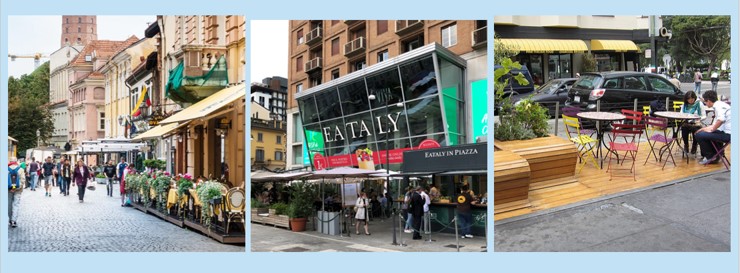
In the opening overview, Pietro L. Verga, LDnet board member, highlighted the use and repurposing of public space in many European cities to allow local commerce and hospitality to function within the constraints of the pandemic. Examples include the open air city strategy in Vilnius, provision of decking on parking lanes (Rotterdam) and allowing temporary structures and longer opening hours (Milan).
Participants referred to other examples. Kim Smedslund said that Helsinki will open on one of the biggest squares an open air cafe-restaurant market. Cafés and restaurants have now authorisation for up to 50% capacity indoors, growing to 75% soon. Nicholas Karachalis, informed us that the city of Athens is launching a campaign called “Athens is Back”. The idea is that businesses will be allowed to post special offers, happy hours, special post-COVID actions, etc and gain visibility for free. But the city centre is still empty.
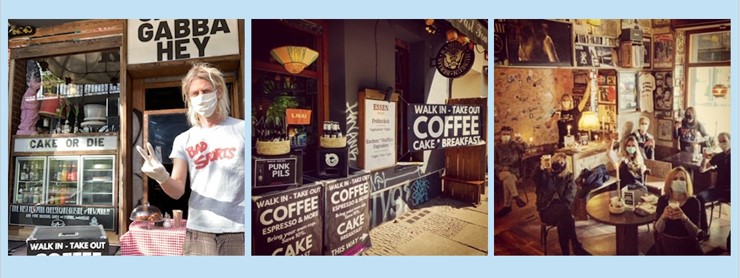
Flo Hayler, who founded 15 years ago the private but not-for-profit Ramones Museum in Berlin talked of its struggle to survive. Initiatives such as virtual on-demand tours and café sales through the window and placing outdoor tables outdoors, encountered practical problems, including the strict application of rules by city officials. The museum received financial support from the government in the first two months. Now museums and shops have reopened, the period of solidarity has ended, but it is not back to normal for businesses, as shoppers and visitors have stayed away.
Other examples of financial support were mentioned by participants for shops and restaurants to adapt their premises. A € 5,000 grant scheme in Portugal was described by Carlos Ribeiro. A voucher scheme to be used for local purchases has introduced in Vilnius.
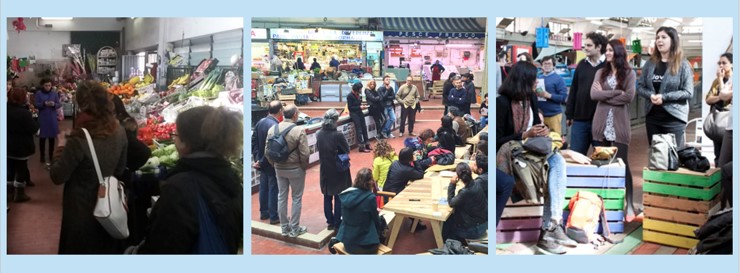
Daniela Patti, Director of Entropian discussed the experience of the public food markets, particularly in the city of Rome which has 120 covered and open air markets. The pandemic added new challenges on top of the old ones, such as the decline in public food markets and pressures for redevelopment or conversion for other uses. Some of the new challenges stood out: continuing to serve all sections of the community; knowing about and using digital platforms by traders and consumers, especially older ones; and even harvesting food / picking fruit and bringing supplies to the markets. In response to the crisis we’ve seen an adaptation of public policies for food markets (illustrated with a short video with the president of Trieste market), help with group ordering and delivering to the most vulnerable, and much greater use of digital platforms.
Some early reflections
It’s too early to draw lessons on the longer-term sustainability of these initiatives and experiences, and how they will inform future strategies for local shopping and hospitality. But there are some early pointers of key issues around which the debate will continue.
- Going back to normal seems to translate into solidarity fading and individual citizens and businesses being on their own. The partnership approach espoused by CLLD and cooperative action are probably needed much more than before. Financial and in-kind support and regulatory flexibility (although sometimes slow) have been very useful in most instances during the crisis and should not be abandoned.
- In the era of the big internet platforms and global shifts in distribution systems, the Covid crisis has acted as a reminder of the value of local food distribution systems, resilient and suitable to meet the needs of all sections of society. Maintaining and building on the ‘gains’ of the crisis period is a central challenge for local strategies.
- The repurposing of public space seems to be destined to be a lasting change and is generally welcome from an environmental and liveability point of view. But the huge expansion of the private domain in the heart of cities and towns currently witnessed raises the question as to how far this trend should go and what should be the limits and balance between public and private space.
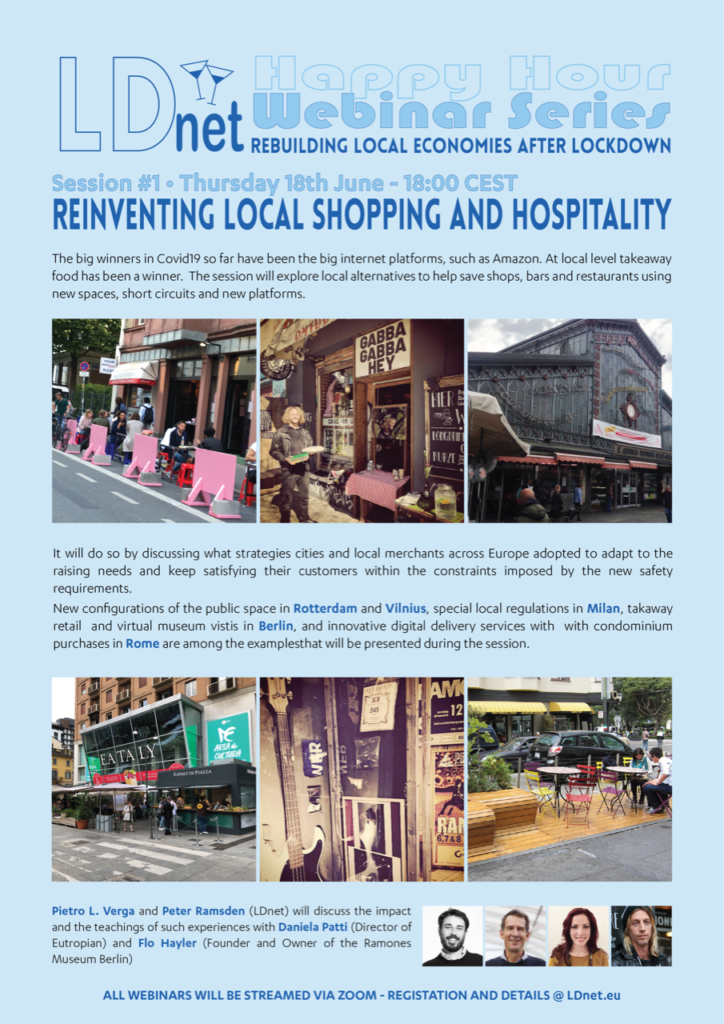
Leave a Reply
You must be logged in to post a comment.